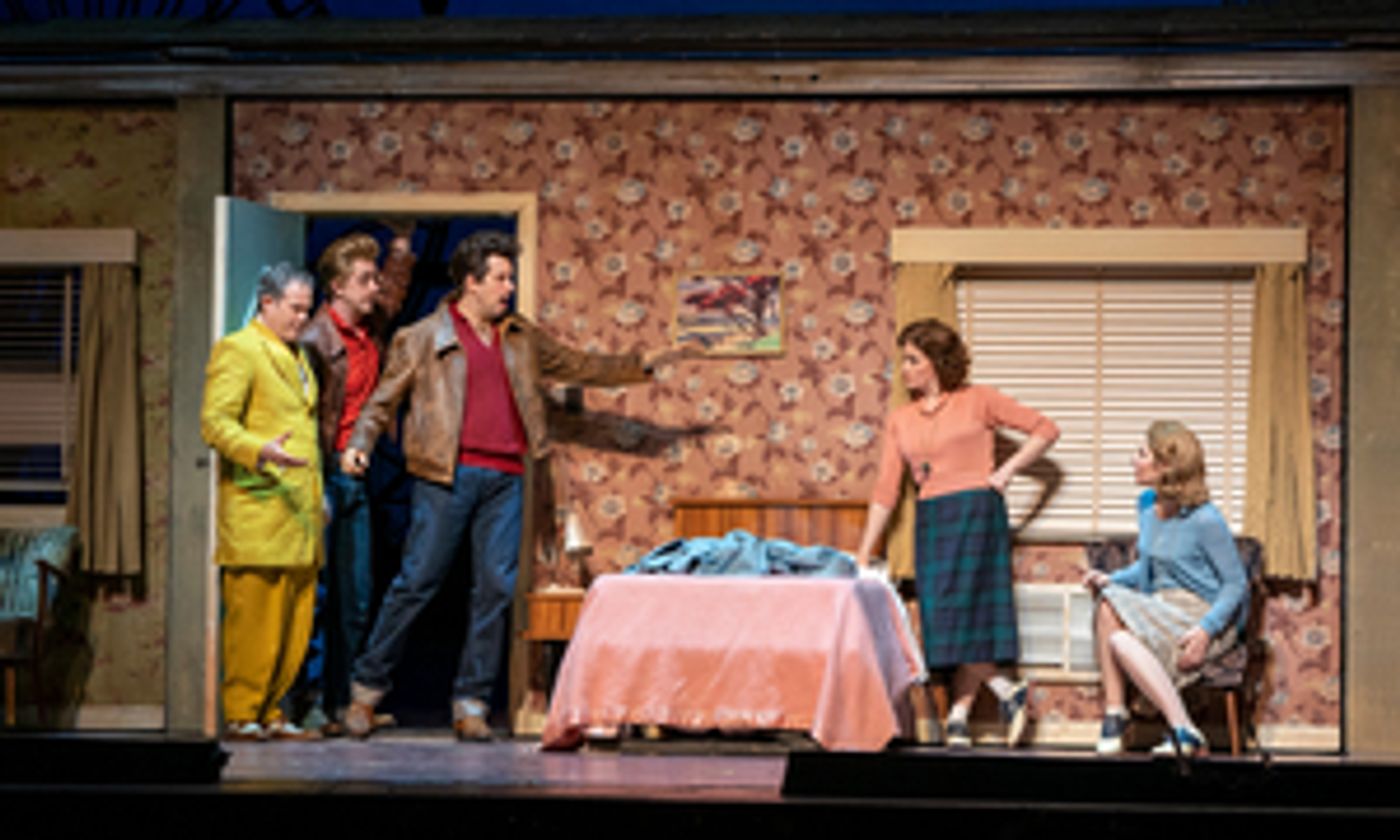Review: COSI FAN TUTTE at the Met Opera

Two years ago, when I first saw photos of the projected new COSI FAN TUTTE,which was a production that originated at English National Opera and was slated to come to the Met, I was circumspect. I had grown up on three previous incarnations of COSI, the first dating from the 1950's a very traditional production which starred Richard Tucker and Eleanor Steber, the subsequent one dating from the 1980's, which had featured Kiri TeKanawa, and the last from 1996, which starred Carol Vaness and Suzanne Mentzer as the sisters Fiordiligi and Dorabella. All were very much "period" pieces which made no effort to update or change the locale from the original setting of eighteenth century Naples.
The current incarnation is updated to the 1950s at an amusement park and nearby motel.
The two male protagonists, Ferrando and Guglielmo, are soldiers and their prospective mates are "bobby-soxer" types. Don Alfonso is the usual mature cynic, and Despina simply a maid at the motel. Being a traditionalist, I was surprised at how much I have grown to love and admire this production. I saw it during its premiere season two years ago then again this past Saturday matinee.
The plot revolves around a wager made between Don Alfonso and the two soldiers that their prospective mates can maintain their fidelity when the men are called to duty. The men are steadfast in their belief that the women will be forever virtuous only to be disappointed and eventually lose the bet--"cosi fan tutte", thus do all (women).
The cast could not have been bettered. The roles of Fiordiligi and Dorabella seemed to have been made for Nicole Car (a Met Mimi) and Serena Malfi (who was Dorabella at the production's premiere two years ago). They played off each other beautifully. Ms. Car's bright, focused soprano blended perfectly with Ms. Malfi's juicy, laser-sharp mezzo.
Their acting was so unforced and natural, you believed in them at all times. Ms. Car's second act "Per Pieta" was heart-stopping.
The men were equally at home in their roles. Ben Bliss sang Ferrando at the production's premiere and, if possible, his performance is even better. In his first act "Aura amorosa", he poured his honeyed tone into Mozart's music with abandon; the aria is one of Mozart's most fervent declarations of love. Luca Pisaroni sang Guglielmo and seemed to be having the time of his life. He sang beautifully and acted the role to the hilt. He is a true Mozartean, singing both Leporello and Don Giovanni, and both the Count and Figaro in NOZZE DI FIGARO.
Despina was Heidi Stober, who has sung Mozart's Pamina. Her act one and act two arias were on target, her bright soprano supporting the text as she attempted to ensnare the two hapless women into the plot.
Don Alfonso was the experienced Mozart singer Gerald Finley, a Papageno and Don Giovanni in previous seasons. He assumed the role of man-about-town, without making Alfonso seem ancient, which can sometimes make him into a stock character. One was left with the impression that he and Despina might one day make a contented couple.
The production was by Phelim McDermott with sets by Tom Pye and costumes by Laura Hopkins. One of the amusing aspects of the production is the constant shifting between indoors and outdoors, which occurred seamlessly.
The wonderful Harry Bicket was the conductor. He has a lot on his plate these days conducting COSI and the new AGRIPPINA. He brought impeccable musicianship to the proceedings, as he always does.
A word must be said about the "skills ensemble", those cast members who portayed the carnival players. There was a sword swallower, fire-eater, snake charmer, and others who added to the carnival atmosphere. When they were not demonstrating their various abilities, they participated in the plot twists and turns.
Can Mozart's COSI stand the updating and change in locale? The answer is YES, most assuredly. The plot is pure farce and great farce is timeless and universal.
Reader Reviews
Videos

